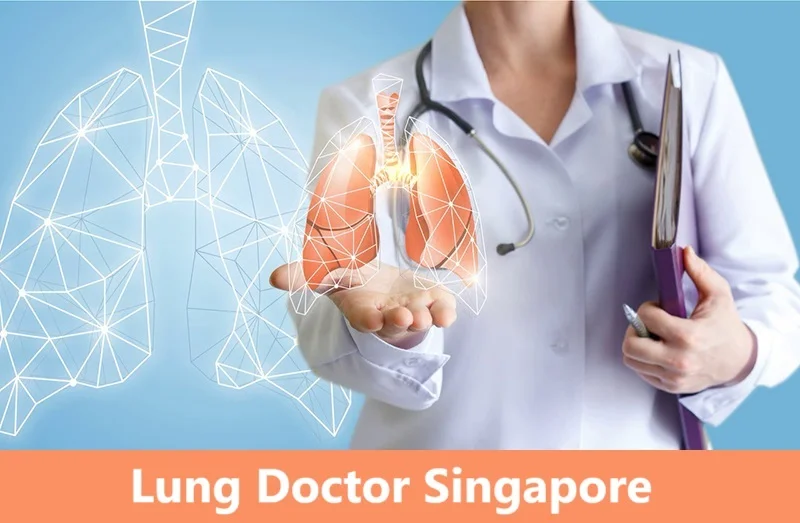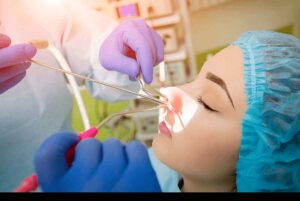Lung Doctor Singapore: Can they also Help with Sleep Apnea?

Characterized by repeated interruptions in breathing during sleep, sleep apnea can lead to severe health complications if left untreated. If you have sleep apnea, you may find yourself waking up feeling fatigued, irritable, or struggling with concentration, even after a full night’s sleep.
Over time, untreated sleep apnea can increase the risk of high blood pressure, heart disease, and other health problems. If you’re in Singapore and suspect you have sleep apnea, you might be wondering if a lung doctor, or pulmonologist, can help.
The answer is yes! The thing about Lung Doctors in Singapore is that they specialize in respiratory health and often treat conditions that affect both the lungs and airways. This includes sleep apnea.
What is Sleep Apnea?
Sleep apnea is a sleeping disorder that forces breathing to repeatedly stop and then start during sleep. Sleep apnea is classified in three groups:
- Obstructive Sleep Apnea (OSA): The most common form, OSA occurs when the throat muscles relax too much and blocks the airway. This causes brief pauses in breathing that can last 10 seconds or more before your body forces you awake to resume normal breathing.
- Central Sleep Apnea (CSA): CSA occurs as a result of the brains failure to transmit proper signals to the muscles that control the normal breathing. This form of sleep apnea is less common and often linked to underlying neurological conditions.
- Complex Sleep Apnea Syndrome: Also known as treatment-emergent central sleep apnea, this condition is a combination of both obstructive and central sleep apnea. It typically occurs when obstructive sleep apnea is treated with CPAP, but central sleep apnea develops in response, requiring further evaluation and treatment.
The telltale symptoms of sleep apnea include;
- Loud snoring
- Difficulty staying asleep (insomnia)
- Daytime sleepiness or fatigue
- Irritability or difficulty concentrating
- Morning headaches
- Gasping for air during sleep
When is Treatment for Sleep Apnea Warranted?
Sleep apnea can significantly impact your quality of life and health. Typically, you may be referred to a lung doctor in Singapore for sleep apnea treatment if you exhibit any of the common symptoms of sleep apnea, such as excessive daytime sleepiness, loud snoring, or gasping for breath during the night.
However, not all cases of snoring indicate sleep apnea, which is why it’s essential to get a professional diagnosis. Here are some key signs that suggest treatment for sleep apnea is necessary:
- Chronic Daytime Fatigue: If you’re constantly tired despite getting enough sleep, it may indicate that sleep apnea is preventing your body from reaching restful stages of sleep.
- Loud, Persistent Snoring: Occasional snoring isn’t always a cause for concern. Loud and persistent snoring that disrupts your partner’s sleep or causes you to wake up gasping is a red flag.
- Pauses in Breathing During Sleep: Please, see a specialist if someone has observed you stop breathing while you sleep. It’s a strong indicator of sleep apnea.
Can a Lung Doctor Help with Sleep Apnea?
If you are getting symptoms that are suggestive of sleep apnea, you do not want to ignore them as this may only lead to further health complications like chronic fatigue, memory problems, difficulty concentrating, and more severe conditions like cardiovascular disease. Therefore, if you suspect sleep apnea, timely diagnosis and treatment are critical to prevent these complications.
A lung doctor, or pulmonologist, can help you accurately diagnose and effectively, manage sleep apnea. Pulmonologists are experts in respiratory health and are trained to treat disorders of the lungs and airways, which are directly involved in sleep apnea.
While sleep apnea is typically linked to obstructed breathing during sleep, the condition also falls under the domain of pulmonology because of its connection to airway management. Your lung doctor in Singapore can assess whether your sleep apnea is related to issues with the respiratory system or other factors.
They can conduct a thorough evaluation, including reviewing your medical history, symptoms, and sleep patterns to provide an accurate diagnosis. Pulmonologists often work alongside sleep specialists and otolaryngologists (ENT doctors) to treat sleep apnea.
However, their expertise in respiratory diseases and the mechanics of breathing makes them particularly well-suited to address obstructive sleep apnea. Their expertise is specifically helpful in more severe cases or when coexisting lung conditions are present.
What Treatments Can a Pulmonologist Provide for Sleep Apnea
Once your lung doctor in Singapore diagnoses sleep apnea, they can recommend a range of treatment options to improve your condition. The goal of treatment is to keep your airway open during sleep and ensure adequate oxygen flow to the body. Here are some of the most common treatment options a pulmonologist may recommend:
- Continuous Positive Airway Pressure (CPAP) Therapy: CPAP is the most common and effective treatment for obstructive sleep apnea. A CPAP machine uses air pressure to keep your airway open while you sleep. The machine delivers air through a mask that you wear over your nose or mouth. This constant airflow prevents your airway from collapsing to allow you to breathe normally throughout the night.
- Bi-level Positive Airway Pressure (BiPAP) Therapy: For patients who cannot tolerate CPAP or need higher pressure settings, a BiPAP machine may be recommended. It delivers two levels of pressure: one for inhalation and one for exhalation, making breathing more comfortable for some users.
- Oral Appliances: For milder cases of sleep apnea, a pulmonologist may recommend an oral appliance. This device repositions your jaw or tongue to help keep your airway open during sleep. It’s often prescribed when CPAP is not tolerated or in conjunction with other treatments.
- Lifestyle Modifications: In some cases, lifestyle changes can significantly improve sleep apnea symptoms. A pulmonologist may recommend weight loss, quitting smoking, or reducing alcohol intake. These modifications can reduce the severity of airway obstruction and improve overall lung health.
- Surgery: In severe cases, surgery may be necessary to correct physical abnormalities that contribute to sleep apnea. A pulmonologist can refer you to a surgeon who specializes in treating airway obstructions.
In Closing
Sleep apnea can impact your overall health and well-being. Fortunately, your lung doctor in Singapore cannot only help diagnose but also treat sleep apnea effectively. If you suspect sleep apnea, seek timely medical attention to help you breathe easier and enjoy restful sleep.
In Singapore, you can book an appointment or visit a board-certified lung doctor at;
International Center for Thoracic Surgery in Singapore | Dr. Aneez
Mt Elizabeth Novena
38 Irrawaddy Road #10-38
Mount Elizabeth Novena Specialist Centre
Singapore 329563
+65 6591 8801
+65 8875 0389
Mt Alvernia
Mount Alvernia Hospital
820 Thomson Road
Medical Centre D
#06-70 S574623
+65 6255 5633
+65 8875 0389
Farrer Park Hospital
1 Farrer Park Station Road #15-06/07
Connexion Singapore 217562
+65 8082 1366







